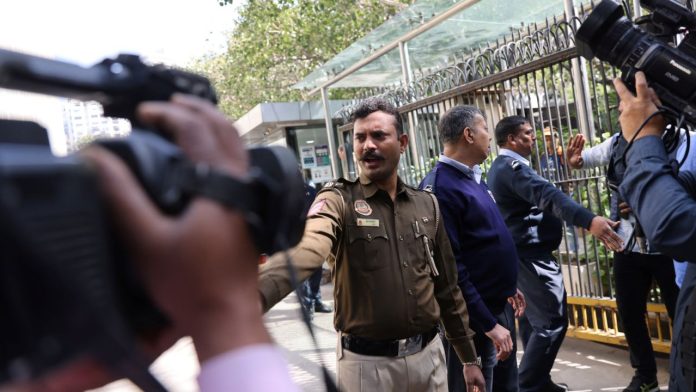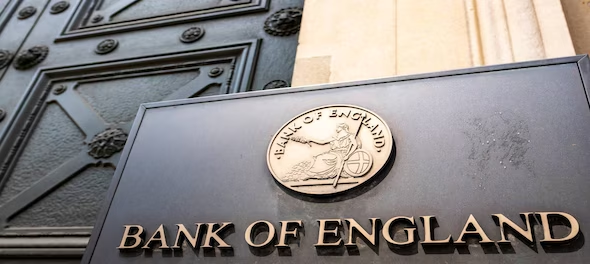The BBC offices in Delhi and Mumbai were raided by Indian tax authorities on Tuesday in a bold move from the country’s right wing, nationalist government.
The raid comes less than a month since the British broadcaster released a documentary on Indian Prime Minister Narendra Modi’s role in the 2002 Gujarat riots.
Multiple Indian media outlets reported that close to 50 officials stormed the offices as employees had their phones and laptops confiscated.
The “survey operation” – as Indian tax authorities called it – is part of a tax investigation that is still ongoing.
But this isn’t the first time income tax raids of this type have taken place in media publications across the country.
So, what exactly do we know at this point?
What have the parties involved said?
The BBC in a statement said that it is “fully cooperating” with the authorities and that “we hope to have this situation resolved as soon as possible”.
Indian income tax officials, on the other hand, told the country’s media that it was a “survey operation” and that they “needed some clarification”.
Media outlets reported that the authorities claim to be looking for documents related to business operations of the BBC in London.
Why conduct income tax raids?
The raids at the BBC offices are similar to those that have been recently carried out at other publications, which have been critical of Modi’s government.
Today’s chain of events began with the BBC publishing a documentary earlier this month, which examined Modi’s role in the Gujarat riots.
The two-part documentary alleges that Modi, who was then the chief minister of the state of Gujarat, was “directly responsible for a climate of impunity”, which led to unthinkable violence against the country’s Muslim population.
The documentary also revealed that the BBC had received access to official documents by the British government, which clearly indicated that the bloody riots “had all the hallmarks of an ethnic cleansing”.
Modi denied all of the allegations, and India’s foreign ministry called it “a propaganda piece”.
Meanwhile, the government invoked an emergency law, blocking access to the documentary across the country.
Residents in India were unable to stream it across any social media platforms as links were swiftly blocked.
And those who tried to view it in public gatherings were either harassed or detained by the police.
On February 10, India’s Supreme Court dismissed a request for a complete ban on the BBC in India, calling the request “completely misconceived” and an attempt at “complete censorship”.
Does Tuesday’s raid follow a pattern?
In 2018, offices of The Quint and The News Minute in India were raided under similar claims, following their critical coverage of the government.
Authorities went as far as to scour through editorial emails of journalists at The Quint and visit the home of its founder, Raghav Bahl.
In a similar move, tax authorities raided the offices of the Hindi language newspaper group Dainik Bhaskar, in 2021, following its coverage on the Indian government’s mishandling of the Covid pandemic.
What has the official response been?
On Tuesday, a spokesperson for Modi’s Bharatiya Janata party (BJP), Gaurav Bhatia, told the media that the BBC was “the most corrupt corporation in the world” and that it has “a tainted and dark history of working with antipathy and malice against India”.
The move has raised concerns about growing media censorship and authoritarianism in the country.
With India entering a crucial election cycle next year, Modi’s government appears to be leaving no stone unturned.
Indian media outlets have reported that the “survey operation” will continue overnight and well into Wednesday.













